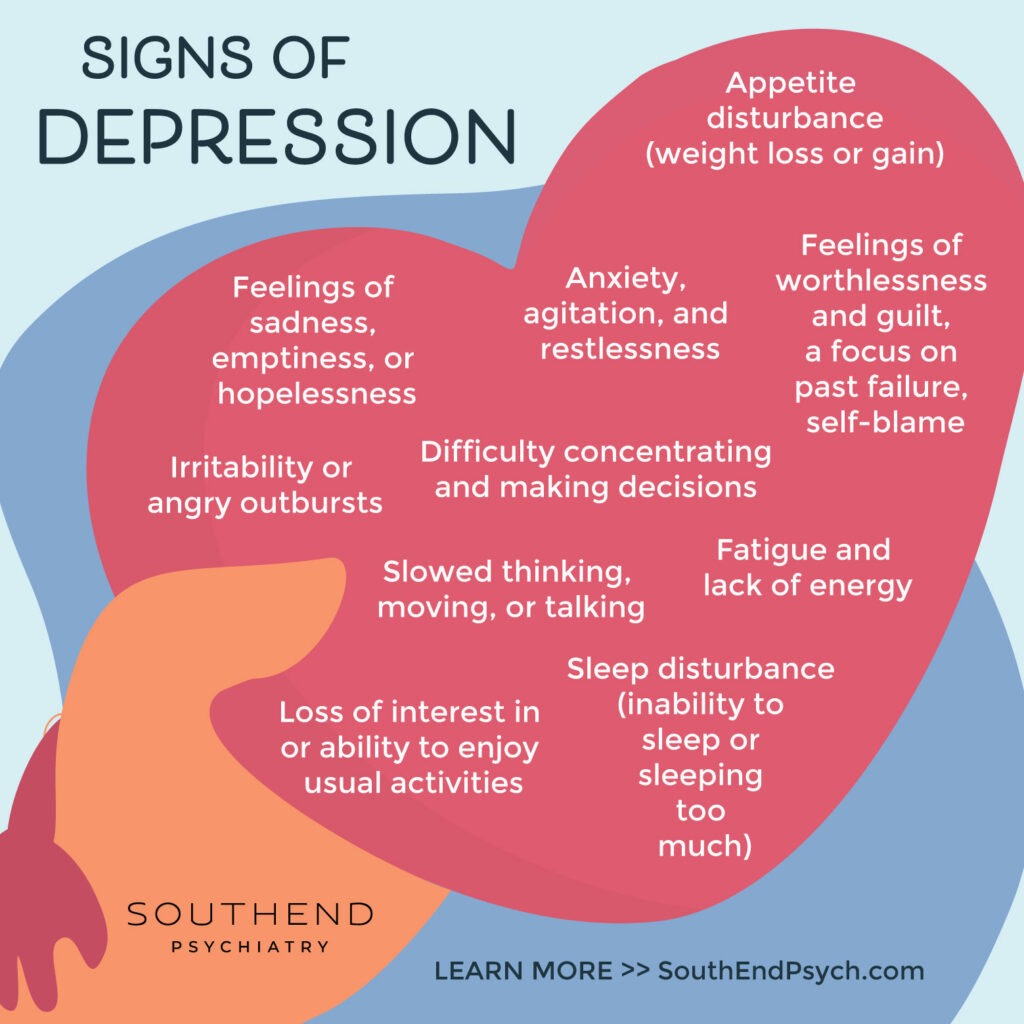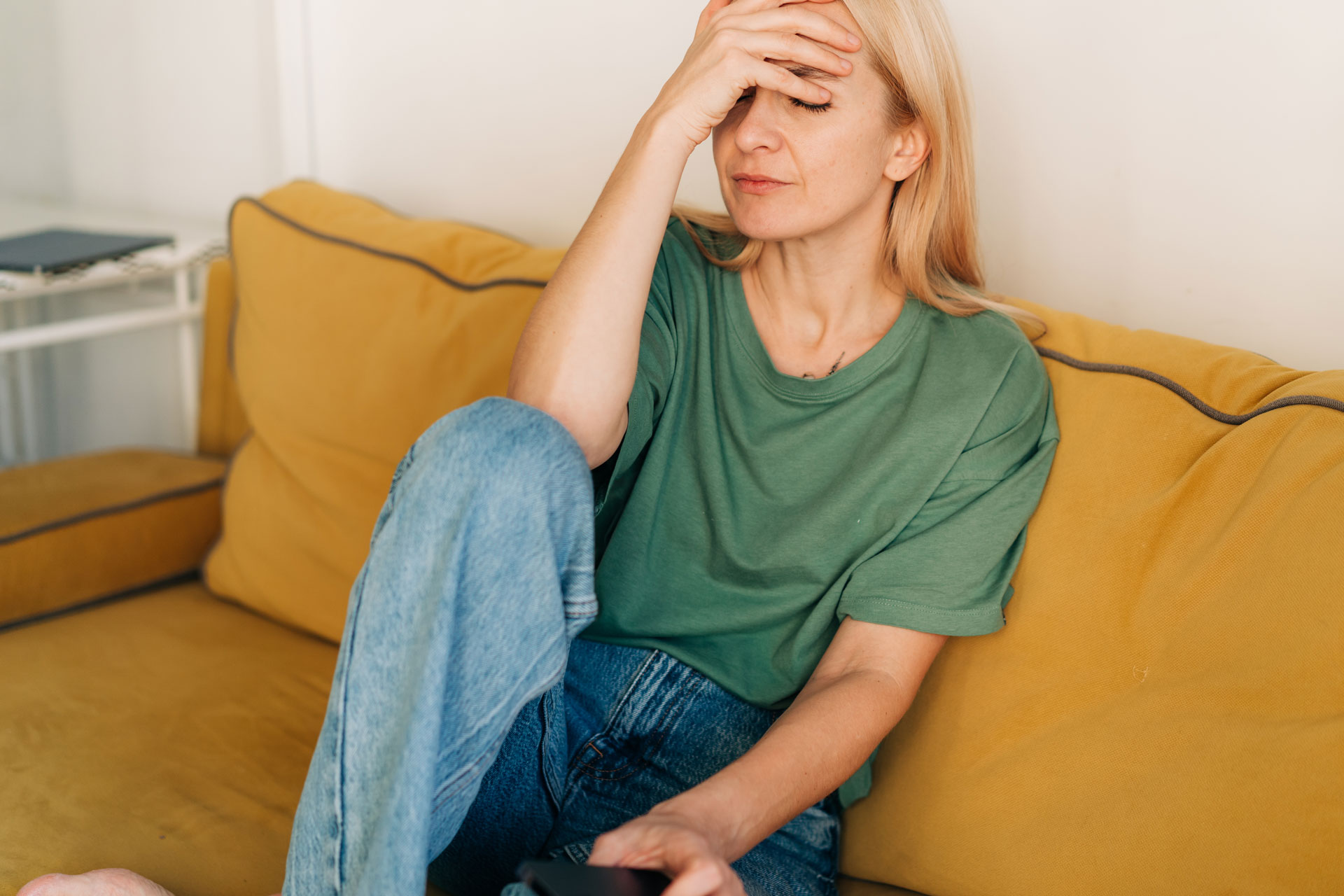Everyone has experienced sadness at some point in their life, but not everyone has experienced depression. So, how do you know if you are depressed? In recognition of Depression Awareness Month, we will uncover the symptoms of depression and the different treatment options available.
According to the National Institute of Health, depression (also known as major depression, major depressive disorder, or clinical depression) is a common but serious mood disorder which can cause severe symptoms that affect how a person feels, thinks, and handles daily activities, such as sleeping, eating, or working.
About 21 million U.S. adults—8.4% of the population—had at least one major depressive episode in 2020 according to The National Survey on Drug Use and Health.

Symptoms of Depression
The National Alliance on Mental Health says that depression can present different symptoms, depending on the person. But for most people, depressive disorder changes how they function day-to-day, and typically for more than two weeks.
Common symptoms of depression include:
- Changes in sleep
- Changes in appetite
- Lack of concentration
- Loss of energy
- Lack of interest in activities
- Hopelessness or guilty thoughts
- Changes in movement (less activity or agitation)
- Physical aches and pains
- Suicidal thoughts
While depression does not have a single cause, it can be triggered by a life crisis, genetics, brain changes, drug/alcohol misuse and other medical conditions. For example, people who have a history of sleep disturbances, medical illness, chronic pain, anxiety and attention-deficit hyperactivity disorder (ADHD) are more likely to develop depression.
Treatment Options
Treatment for depressive disorder is available for those who have experienced a depressive episode lasting longer than two weeks. The first step to treatment is contacting your primary care doctor, a psychiatrist, or a psychotherapist for an evaluation.
Psychotherapy (cognitive behavioral therapy, family-focused therapy and interpersonal therapy), medications (antidepressants, mood stabilizers and antipsychotic medications) and exercise can help with depressive disorder. These are highly effective treatments for those suffering from depression.
If you suspect you have depression, or if you’re feeling troubled by your symptoms, have suicidal thoughts, or just need to talk, SouthEnd Psychiatry is here for you. Our amazing team of licensed therapists are ready to walk along side you in this journey.
Contact Southend Psych today to inquire about appointment availability and get you on your way to a better place.
Southend Psychiatry
Schedule your appointment today with one of our SouthEnd Psychiatry clinicians. Book your appointment online or call 1-800-632-7969 to get started today.



